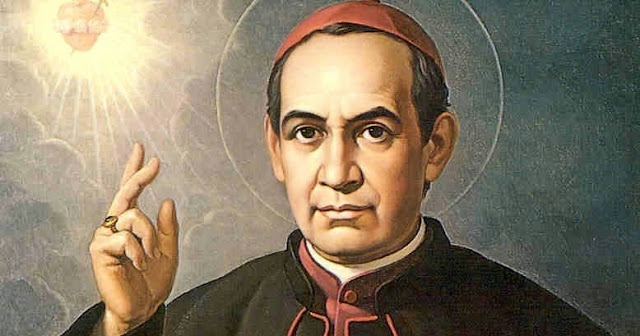St. Anthony was born in Spain in 1807, the fifth of 11 children in a poor weaving family. He was inspired by his parents’ faith and devotion from an early age. By 21, Anthony was in high demand as a weaver, but he suffered from ill health.
He had a vision of himself as a Carthusian monk, and after seeking advice from his bishop, joined the seminary.
After his ordination, Anthony worked in the missions for 10 years. In 1849, he founded the Claretian order.
He was then assigned as archbishop of Santiago, Cuba, and made many changes to inspire new faith and growth in his diocese. He reorganized the seminary training program and traveled to all the churches in his diocese to celebrate Mass and hear confessions. Not all his renewals were spiritual — he taught black slaves, and worked to improve farming methods so that people could own their own farms. He was targeted for his radical changes, and 15 assassination attempts were made on his life.
After eight years as archbishop, Anthony was sent to Spain to be the confessor to Queen Isabella II. He arranged with her that he would not live at the palace, but would come to hear confessions and teach her children. While in Spain, he opened a religious publishing house, and wrote more than 200 books and pamphlets.
In 1886, Anthony and Queen Isabella were exiled during the Spanish Revolution. He returned to Rome to defend the infallibility of the Pope at Vatican I, and then went to a Cistercian monastery in France, where he died in 1870.
St. Anthony was canonized in 1950.

